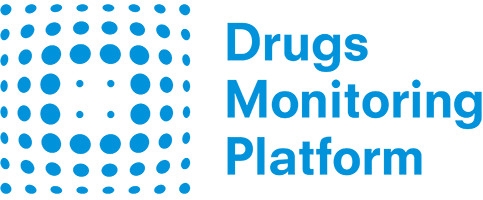1. Aim of the Drugs Monitoring Platform (DMP)
The main aim of the Drugs Monitoring Platform (DMP) is to provide user-friendly access to a comprehensive and multi-sourced dataset on significant individual drug seizure data. This dataset provides unique information on drug trafficking trends and drug traffickers’ modi operandi. The DMP provides near real-time data on drug trafficking and it facilitates early warning drug threat identification.
2. Channel Methodology/Available data
The primary source of information stored in the DMP are national authorities or other official agencies, such as international organizations active in the area of law enforcement. Data collection channels refer to the method through which data are collected by UNODC. This includes:
- Individual Drug Seizures (IDS): individual drug seizure data currently provided to UNODC by UN Member States through the official mandated IDS data collection
- Monitored Government Websites: seizures obtained from government websites entered in the DMP
- Data Harvested from Government Websites: seizures obtained from government websites, including select social media official outlets (government twitter handles and government Facebook pages), utilizing Big Data technology
- Partners: data provided by cooperating partners
- Monitored Mass Media: data from news outlets that is not harvested using Big Data technology
- Data Harvested from Mass Media: data from news outlets obtained using Big Data technology.
2.1. Access to the DMP data
The following table summarizes the data available in the public environment, and that available to users with restricted access:
| Reporting channel | Public environment | Restricted environment |
| Individual Drug Seizures (IDS) | ||
| Monitored Government Websites | ||
| Data Harvested from Government Websites |
|
|
| Partners | ||
| Monitored Mass Media | ||
Data Harvested from Mass Media |
3. Level of access
Given the type of information collected and stored in the DMP, two types of access are in place:
Public access: the general public has access to selected data collected through the Individual Drug Seizure (IDS) data collection questionnaire which consists of data on significant cases of drug seizures in a country and reported to UNODC by UN Member States as mandated by the three drug control conventions.
Restricted access: authorized users/partners who meet one or several criteria listed below (see sub-Section 2.1) have access to the entire DMP dataset. The DMP team evaluates all requests for access to the restricted environment.
3.1. Criteria for access to the restricted environment
All completed User Registration Form(s) will be assessed by the DMP team. The user must meet one or several of the following criteria for approval of an access request:
- IDS Focal Points from UN Member States that regularly provide data
- Approved representatives from UN Member States (including Permanent Missions) and/or national institutions that regularly provide data with a mutual commitment to data sharing
- Staff members of UNODC where the data contained within the DMP is relevant for their work
- Staff from other selected UN offices that share data
- Cooperating Partners listed on the platform who share data (All users other than UNODC Member States are defined as belonging to an international organization, a UNODC programme, or another entity that is interested in joining the DMP community by contributing with additional data to further enrich the DMP)
Users must comply with the terms and conditions of use of the DMP. Each proposal to contribute data will be evaluated by UNODC on a case-by-case basis, as data contributions should be significant and cover an extended period of time. Access will be re-evaluated annually with the possibility for subsequent renewals, based on individual entity contributions. Other requestors may be granted temporary access to the DMP on an ad-hoc basis.
3.2. Review of applications for access to the restricted environment
Restricted access will be granted upon completion and review by the DMP team of the completed User Registration Form.
If the Applicant complies with the required criteria, the DMP team will forward a confirmation of registration, together with login information (username and password). Once logged in for the first time, the user will be able to change the password.
3.3. Period of access
Access to the restricted environment is limited to one year with the possibility of subsequent annual renewals upon re-submission of the User Registration Form, when the year end-date has arrived. The user will be automatically notified about the end-date and if not confirmed, previous access will be deleted to ensure the sharing of data in a secured way.
3.4. Privacy of users
Only the DMP team has access to the identity and contact details of DMP users, and these data are treated as confidential.
3.4.1. Data release
In the public environment, data will be regularly published as often as possible so that users can access timely information. UNODC will periodically inform the public DMP user community of the availability of new data in the DMP.
Disclaimer: The accuracy and comprehensiveness of the data should not be interpreted as an absolute and should be handled with caution as the data do not represent a total picture of drug seizures and drug trafficking.
3.5. Downloading of data
In both the public and restricted environments, users can obtain data related to IDS through a downloadable excel file.
4. Compliance
The user and the affiliated institution shall comply with the “DMP Access Policy” (as amended from time to time), the “Terms and Conditions of Use” and any renewals thereof, of any requirements set out by the DMP team. This applies both to the public and restricted environments. Please note that the Terms of Conditions of Use for the data available in each of these two environments may differ.
5. Amendments to this Policy
This access policy is in effect as of 3 July 2022.


